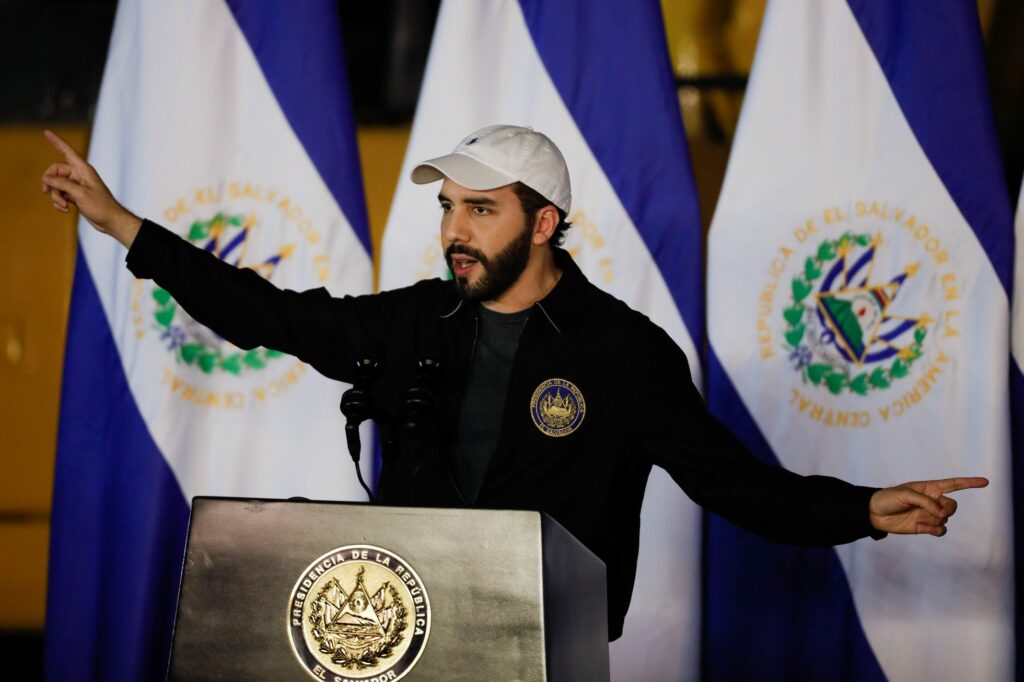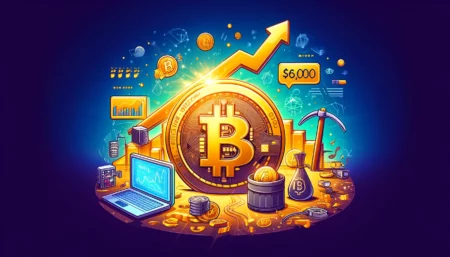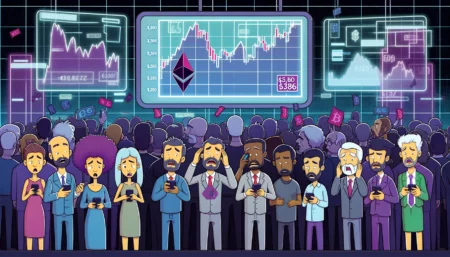El Salvador has been the arena for monetary experiments. In 2001, the U.S. dollar became the country’s only legal tender. On June 9, 2021, El Salvador’s Congress formally voted to pass the Bitcoin BTC 0.14% Act, becoming the first country in the world to declare Bitcoin as legal tender, causing a sensation in the entire crypto industry and even the traditional financial industry.
It has been a year since El Salvador’s Congress passed the Bitcoin Act, during which the country has proposed a series of plans such as building a Bitcoin City, using volcanic geothermal energy to mine Bitcoin, and issuing $1 billion in Bitcoin bonds. What is the actual status of El Salvador’s series of plans for Bitcoin this year? What impact has Bitcoin had on this country?
Top-down policy
This national-level virtual currency experiment kicked off in June 2021. At that time, El Salvador’s Congress passed the bill “to make Bitcoin legal tender in the country” with 62 votes in favor and 22 against. The 39-year-old El Salvador president pointed out to Congress: “The purpose of this law is to make bitcoin an unrestricted legal tender, to give bitcoin free power and unrestricted control in any transaction, and to enable Any ownership is owned by public or private, natural or legal persons.”
On September 7 of the same year, the President of El Salvador signed the bill, and Bitcoin officially became the country’s legal tender, along with the U.S. dollar. This is also the first time Bitcoin has become the legal tender of a country.
President Nayib Bukele, who proclaimed this policy, belongs to the young forces of this world, as much as he did with Bitcoin. Nayib Bukele was sworn in on June 1, 2019 for a five-year term. He is currently the youngest head of state in Latin America, having previously only been mayor of Nuevo Cuscatlan (2012) and San Salvador (2015). His party, the Grand Alliance for National Unity, is also largely composed of young people.
El Salvador will become the first country to legalize Bitcoin, which is also related to its special national conditions. The country is located in Central America, and its citizens have long relied on remittances, resulting in a “dollarization” of its economic system. Since January 1, 2001, the Central Bank of El Salvador has no longer issued the colon (the original national currency of El Salvador). This effectively means that Salvadoran officials have acquiesced to the status of the US dollar as legal tender. So far El Salvador no longer has its own independent monetary system. Since then, the fiscal decisions of the US government and the monetary policy of the Federal Reserve have had a profound impact on the domestic economy of El Salvador. Since dollarization in 2001, El Salvador has experienced high debt and soaring living costs.
Legalizing Bitcoin, at least in conception, would bring two benefits to the country. On the one hand, Salvadoran diaspora remit more than $4 billion from abroad to their hometowns each year, accounting for 20 percent of the country’s GDP. International transfer fees are high and time consuming. If you use Bitcoin, you can effectively reduce transfer fees and save $400 million in transaction fees every year. On the other hand, around 70% of El Salvador’s population is unbanked, meaning they do not have regular bank accounts or access to typical banking services. If a Bitcoin wallet is used, it will be the first time that many Salvadorans have encountered the ability to have banking services like a savings account.
El Salvador has long been interested in Bitcoin. Before the bill passed, the country’s Congress approved a $150 million bitcoin trust fund to support the exchange of bitcoin to the U.S. dollar, the funds of which will be disbursed by the Ministry of Finance and managed by the National Development Bank of El Salvador. In addition, the government is also deploying 200 bitcoin ATMs across the country to facilitate people to exchange dollars and bitcoins.
In addition, in order to assist the application of Bitcoin, El Salvador and AlphaPoint jointly launched a mobile encrypted wallet – Chivo. AlphaPoint provides front-end and back-end infrastructure services for this application, and integrates the Lightning Network, as well as the entire country’s bitcoin application ecological scenarios, aiming to provide users with timely bitcoin wallet functions with almost no transaction fees.
The government is also heavily promoting the Chivo wallet. El Salvador’s president hyped it up on social media and TV broadcasts, even teaching people how to use Chivo. Last September, the government planned to spend more than $225 million to promote it, which included giving out $30 worth of bitcoin to each user’s account to incentivize spending. In the brave new world the president envisions, in El Salvador, bitcoin will be able to buy anything — from roadside fried corn to fast food restaurants, street trinkets to real estate transactions.
President Bukele’s long-term vision is to be a “Bitcoin City.” In addition to legalizing bitcoin, the country also wants to use its geographical advantage, the volcano, to mine bitcoin. Bukele also tweeted a scale model of “Bitcoin City,” which he said would be built at the foot of a volcano, using volcanic geothermal energy to power a huge Bitcoin mining farm.
Volcanoes in El Salvador
In October last year, the government said it had successfully mined 0.00599179 bitcoins using volcanic resources. In fact, the so-called volcanic energy is actually geothermal, and El Salvador has the title of “the country of volcanoes”, and 1/4 of the country’s electricity supply comes from geothermal. Its advantages are cheap, clean, renewable, zero-emission, etc. However, Bitcoin mining in Iceland has relied on volcanic energy from the beginning, and this method is not entirely new.
In order to develop the plan of “relying on the mountain”, the government announced that it plans to issue the world’s first bitcoin bond – “Volcano Bond” with a maturity of $1 billion and 10 years on the Liquid Network, and half of the proceeds will be used to buy BTC And dividends, another 500 million US dollars will be invested in energy infrastructure and bitcoin mining, “Bitcoin City” is from the capital planning of the latter 500 million US dollars, this new city can almost be understood as El Salvador’s response to bitcoin The long-term layout of the coin mining industry.
In addition to this, Bukele had planned to draft a bill that would allow foreign immigrants to invest 3 bitcoins in El Salvador to receive permanent residency in the country. El Salvador’s government will exempt foreign investors from tax on bitcoin profits, legal advisers to the El Salvador government have said. The government sees this as a development move that is good for incentivizing entrepreneurs and investors to enter the country. In addition, in the Bitcoin-related bill, it is mentioned that “the state needs to promote the necessary training and mechanisms to enable the public to enter the Bitcoin trading system”, and promote the “popularization” of Bitcoin by popularizing encryption knowledge and providing various educations.
Bottom-up strike
This rapid and fiery national Bitcoin experiment soon met with a cold reality. Anti-Bitcoin protests erupted in El Salvador a few months after the adoption of the Bitcoin legalization proposal. Protesters burned down a Bitcoin ATM in the country’s capital. “Democracy is not for sale” slogan.
The usage rate of the Bitcoin wallet Chivo is also not high. Although the number of registrations exceeded 1.6 million within two weeks of its launch, the app downloads instantly soared to the top of the major app stores. But the core reason for its soaring downloads is a sign-up bonus worth $30 BTC. That’s a sizable bonus in this Central American country with a GDP per capita of $4,131.
After that, the problem of using the Chivo wallet continued. Due to the imperfection of its technology, when some users use Chivo to transfer funds, the amount has not been received for a long time, but their block records show that the funds have been transferred out. The lost funds of these users ranged from tens of dollars to thousands of dollars. When users approach the Chivo customer service team for assistance, they are sometimes notified that they cannot be processed, or even receive no processing.
Ultimately, while many Salvadorans have internet-enabled smartphones, fewer than 60 percent have downloaded the Chivo wallet. Of these, less than 40% of citizens continued to use the app after claiming their registration bonus.
Even without the above technical problems, it is not easy to use Bitcoin for daily payments. Not all consumers and merchants accept this method. Because most people in the country do not understand Bitcoin, they are full of anxiety and worry about it, so they directly choose to reject it. The data shows that only 20% of companies said they accept bitcoin as a payment method, most of which are for large organizations. Only 5% of all sales are made in Bitcoin, and most transactions are converted directly to U.S. dollars after merchants receive payment.
A recent survey study shows that after the government of El Salvador initially strongly encouraged its citizens to start using this new financial system, enthusiasm and adoption have been low. Adoption rates for most key metrics are shrinking with little momentum. Among them, a company involved in the development of Chivo said, “The app only has 6,000 to 15,000 transactions per day,” a small number relative to El Salvador’s adult population of 4.3 million.
A deeper reason for the difficulty of implementing Bitcoin in El Salvador may have to do with the inherent foundations of the country’s society, economy, and culture. El Salvador is located in the “Northern Triangle of Central America”. The so-called “Central American Delta” refers to the three countries of Honduras, El Salvador and Guatemala. These three countries are the poorest, most violent, most gangster-ridden, most refugee, and most politically chaotic in the entire Western Hemisphere. Among them, El Salvador is an agricultural country with a weak industrial base. Ninety percent of the small farmers cannot be self-sufficient, so these people can only be forced to accept extremely low wages on the premise of relying on large farmers. El Salvador’s 14 richest oligarchic families control most of the country’s land resources and financial resources.
In a country of less than 7 million people, there is one gang member for every 70 people. Kidnapping for ransom has almost become a commonplace occupation in this country. Salvadorans pay gangs $756 million a year in protection fees, which alone accounts for 3 percent of the country’s GDP. The number of people killed by murder in the country is no less than 1,000 every year. In just half a year in 2015, 3,400 people were killed by murder, more than Yemen and Afghanistan, which were in wars during the same period. The country’s two largest gangs, the MS-13 and the 18th Street Gang, have a combined membership of more than 70,000 members, almost twice the size of the country’s armed forces. The homicides are, in our opinion, extremely vicious events, but in El Salvador it is even more serious. It is like a certain way of life of the local people, which we have to face every day. There have even been bizarre scenes in which Saskatchewans celebrated because there was no fatality all day.
Poverty and chaotic social soil directly lead to worrying about the basic education level of the people in the country. In El Salvador, children and youth who should be sitting in classrooms and learning in other countries have entered a quagmire of violence and crime prematurely. In 2005, the median age of Salvadoran gang members was 19, and now more than 60% of gang members have joined before the age of 15.
Within the crypto industry, many people, represented by Ethereum ETH -0.05% founder Vitalik Buterin, are also opposed to the country’s adoption of Bitcoin as legal tender.
“Forcing businesses to accept a particular cryptocurrency runs counter to the ideal of freedom, which is so important to the crypto space,” Vitalik said. “Furthermore, this kind of approach that pushes Bitcoin to Salva’s majority of millions of users is antithetical to the A strategy without prior education is reckless and has the potential to expose many innocent people to being hacked or deceived. Shame on someone who uncritically praises Nayab Bukele (name the person primarily responsible: Bitcoin extremists really shameful).”
Vitalik also said that Nayib Bukele’s behavior violated the spirit of Bitcoin and ultimately only made the president richer and was speculative.
Accelerating Debt Crisis
El Salvador’s bitcoin holdings are currently valued at around $46.59 million, as of June 22, and the country has invested $102 million in bitcoin for its treasury since it became legal tender last September. That said, El Salvador’s bitcoin holdings have now lost $57.41 million.
El Salvador’s president also appears to be keeping a low profile. Previously, Nayib Bukele would tweet about buying Bitcoin on dips almost every time the crypto market fell, but in the latest round of the crash, the president has not made a similar statement. The “Volcano Bond”, which was once excitedly planned to be issued, was supposed to be launched in mid-March this year, but now there is no news.
El Salvador’s finance minister, Alejandro Zelaya, said bitcoin losses pose a minimal risk to the country’s finances, noting that the amount is less than 0.5 percent of the government’s budget.
But the impact of this radical virtual currency experiment on El Salvador’s national finances is far more than a loss of more than $50 million. According to a related analysis, El Salvador’s Bitcoin “movement” has already affected their ability to repay their foreign debt. Spreads on El Salvador’s credit default swaps (CDS) have risen by more than 20 percentage points since El Salvador adopted bitcoin as legal tender, implying an 87 percent chance of default over the next five years. El Salvador paid a coupon of $38.25 million on June 15, and the bond has a maturity date of 2035. That is to say, the funds lost by “Stud” Bitcoin are more than $20 million higher than the coupon rate of the sovereign debt that the country needs to repay.
The country’s debt prices plummeted 15.1% this year in April, a decline only surpassed by bonds in war-torn Ukraine. Down about 18% since then, El Salvador’s benchmark bond due 2032 is now trading at 40% of face value and yielding 24%, a level that suggests investors are bracing for a default.
El Salvador has paid bondholders about $382 million in interest this year, with $183 million due in July, the largest month for repayments. El Salvador’s next principal payment is due in January and is worth $800 million. The bonds are currently trading at a 22% discount, suggesting investors are hesitant to cash in on the bonds. This is also reported by most foreign media, and El Salvador is likely to repay this debt.
El Salvador’s central bank previously revealed that the country had a total of $3.4 billion in foreign exchange reserves in April, and the government plans to raise $1 billion through bitcoin-backed bonds. While the plan is unconventional at best, some investors still hope it will at least bring some cash into government coffers. It is unclear whether the deal will go through.
In February, Fitch downgraded El Salvador’s sovereign debt rating from “B-” to “CCC” from junk status, citing the huge risks posed by the country’s adoption of bitcoin as legal tender. Fitch also said El Salvador’s “increased reliance on short-term debt increases funding risks” ahead of the $800 million global bond due in January. In addition, Moody’s, an authoritative US bond rating agency, downgraded El Salvador’s debt rating to CAA3, which is “poor quality, very high credit risk, and extremely high probability of serious credit events.”
The cost of insuring investors against El Salvador’s sovereign default over the next five years hit its highest level since 2020, according to S&P Global data.
After El Salvador’s credit rating is lowered, it will become more and more difficult for them to issue foreign debts. If the old debts cannot be repaid by issuing new debts in the future, there will be a sovereign debt default. At that time, El Salvador will fall into a very passive situation, not even ruling out The possibility of national bankruptcy.
Additionally, El Salvador’s adoption of bitcoin has put the country at odds with multilateral lenders such as the International Monetary Fund (IMF). The International Monetary Fund, which acts as the lender of last resort, has been urging El Salvador to withdraw its legal tender status since it fully embraced it, warning that its use poses risks such as financial stability. The country’s finance minister, Alejandro Zelaya, said last year that the government was seeking $1.3 billion in financing from the IMF, but the IMF suggested El Salvador must abandon bitcoin’s fiat policy. Some executive directors expressed concern about the risks of issuing bitcoin-backed bonds. Executive Directors saw the need for El Salvador to begin fiscal consolidation this year to restore fiscal sustainability and bring public debt levels down steadily.
The reason why the El Salvador government has been warned by the IMF is that a large part of it is not because Bitcoin has led to the near-destruction of El Salvador’s economic situation, but in the country’s national conditions, it still fully accepts Bitcoin without thinking, which will further prompt it to fall. cliff. The IMF expects that, under current policies, El Salvador’s current account deficit in remittances and externally financed economies will hover around $2 billion by 2025, and El Salvador’s public debt will rise to 96 percent of its GDP by 2026. %. As of the beginning of this month, El Salvador’s debt-point base over U.S. Treasuries has breached a record-high premium of 2,500 basis points.






